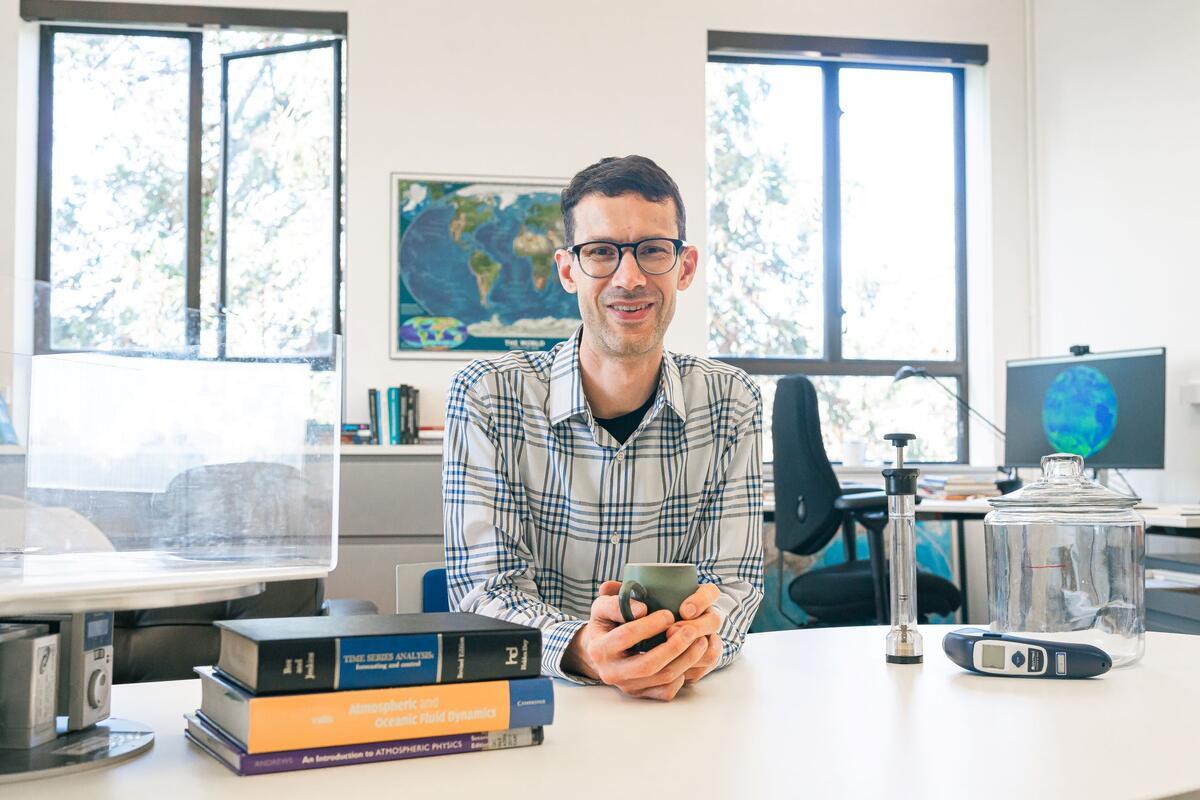Bill Boos started out as a physics guy at a big public institution (SUNY-Binghamton) and that’s the way he still sees himself. He’s a professor in Earth & Planetary Science here at UC Berkeley now, but “earth science is physics, just with a particular focus.” Boos’ research focuses on large-scale climate dynamics—how atmospheric circulations, ocean interactions, radiative transfer, and land surface processes control regional and global climate. He helps discover how the world around us works, and he gets there through careful theory and analysis rooted in hard data—hard as rocks.
While doing a Master’s at MIT, Boos’ advisor proffered three possible topics, and the third—hurricanes in the tropics--was so captivating that he was hooked and has stayed on the topic of climate dynamics now for over twenty years. Hurricanes do more than damage the region they pass over; they can have worldwide effects. How local phenomena influence the distribution of water throughout the atmosphere at a planetary scale is one of the central unresolved problems of EPS. This is especially true for extreme weather events that happen in the tropics, such as monsoons. For the past decade or so researchers in this field, including Prof. Boos, have been sorting out the details of dynamic flows in the tropics, partially because the temperate latitudes have largely been successfully analyzed already.



